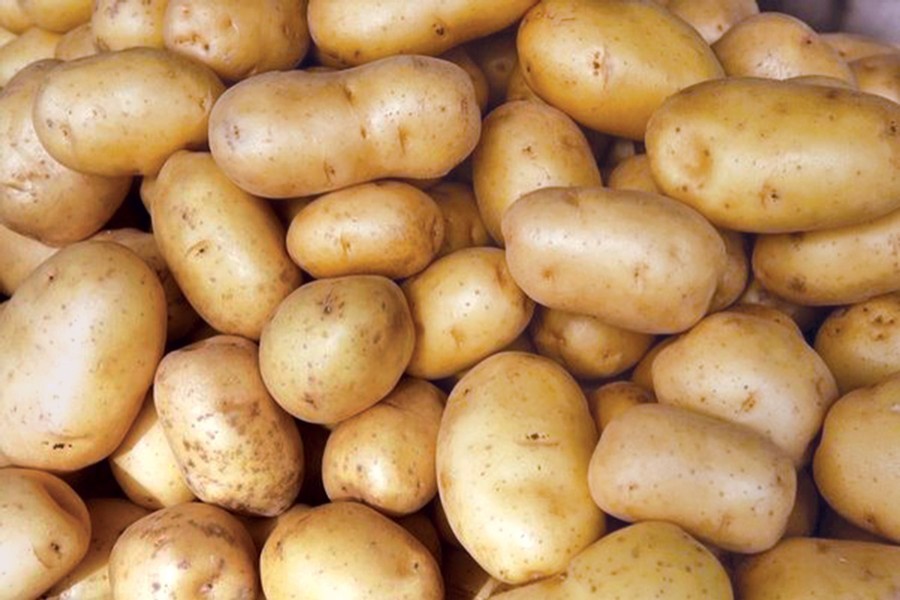The decision taken by the government to set up a Potato Centre is heartening on at least two counts: saving huge quantities of potatoes from rotting at farmers' yards and godowns, and facilitating export to target markets. For quite sometime there were demands from both farmers and wholesalers for a comprehensive mechanism -- beyond just stocking potatoes in cold storages -- to ensure quality, taste and hygiene. With the move announced on establishing a Potato Centre, it is clear that the authorities are set to making a headway in proper preservation, development and boosting export of potato.
It has been gathered from newspaper reports that the decision came at a meeting of the agriculture minister with a delegation from the International Potato Centre (CIP). The CIP, based in Lima, Peru deals with a whole package of potato preservation, pest-free quality assurance, and has research presence in more than twenty countries in Africa, Asia and Latin America with special focus on various grades and types of potatoes, andean roots and tubers. The delegation led by the regional coordinator of the CIP offered cooperation for setting up a potato centre in Bangladesh. The government, on its part, has readily agreed to provide necessary land for setting up the centre to help develop varieties of potato and scientific preservation.
For years now, good harvest of potato has turned out to be a cause for the growers' misery. While concerned quarters put it on lack of planning, which among others includes dearth of sufficient storage facilities in the vicinities of potato growing areas, the 'burden' of bumper harvest falls squarely on farmers who are extremely ill at ease with their produce in a severely under-priced domestic market. As a result, stockpiled unsold potatoes, carrying hazards at various points up to wholesale markets, and colossal wastage are the most common features associated with potato cultivation in the country.
Bangladesh produces more than 10 million tonnes of potato annually against the domestic demand of 7.0 million, according to the Department of Agricultural Extension (DAE). This goes to clearly point to the considerable surplus that could be exported. But wastage, poor quality and rotting due to lack of proper preservation cuts a heavy toll on the produce at various stages. It is here that the CIP could be of immense help to the country's potato growers in providing necessary assistance as well as technical support for developing newer and climate-friendly varieties of potatoes, scientific methods of preservation and maintenance of sanitary and phytosanitary protocols as required by the target markets. Bangladesh currently exports potatoes to around a dozen countries in the Middle Eastern and Asian region. Russia and the European Union can be potential markets for Bangladesh. Russia alone has a demand for 26 million tonnes of potato annually. Accessing these markets would need strict quality control and fulfilment of a host of compliance norms. Running a potato centre with the support of the CIP can be highly rewarding in this regard.


